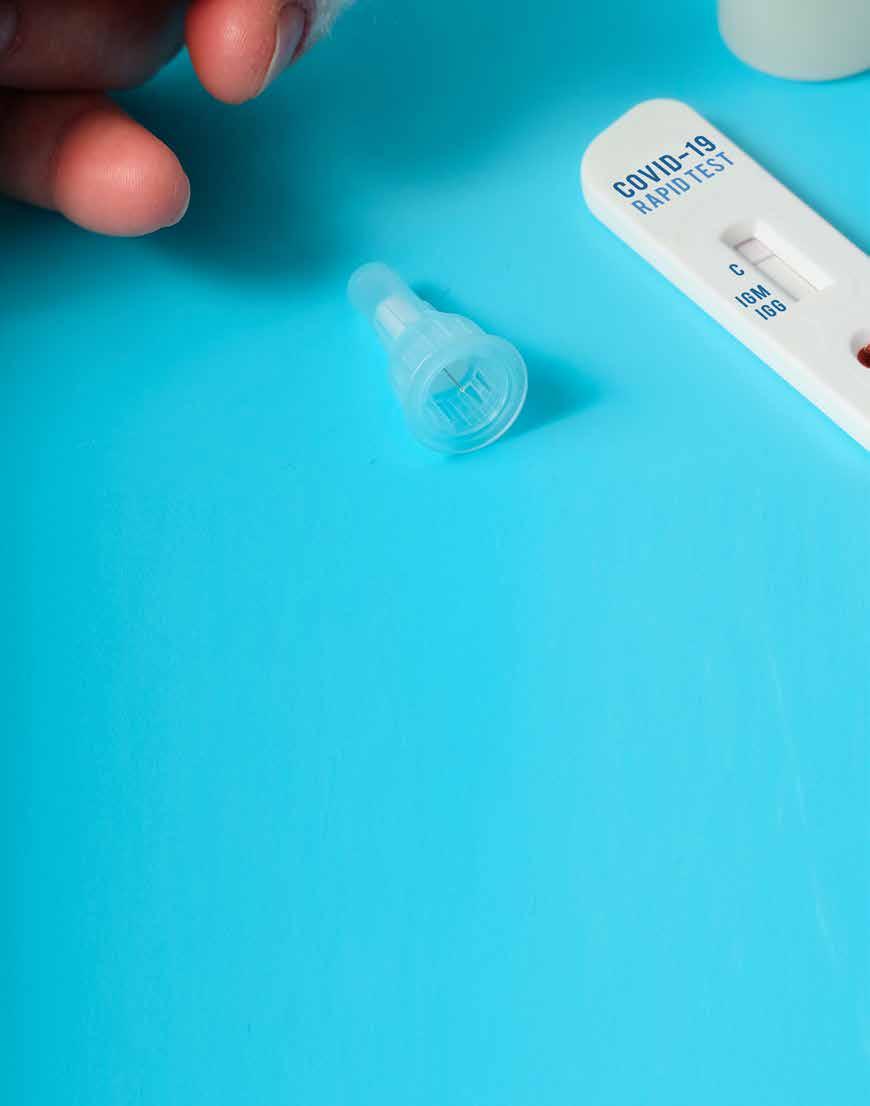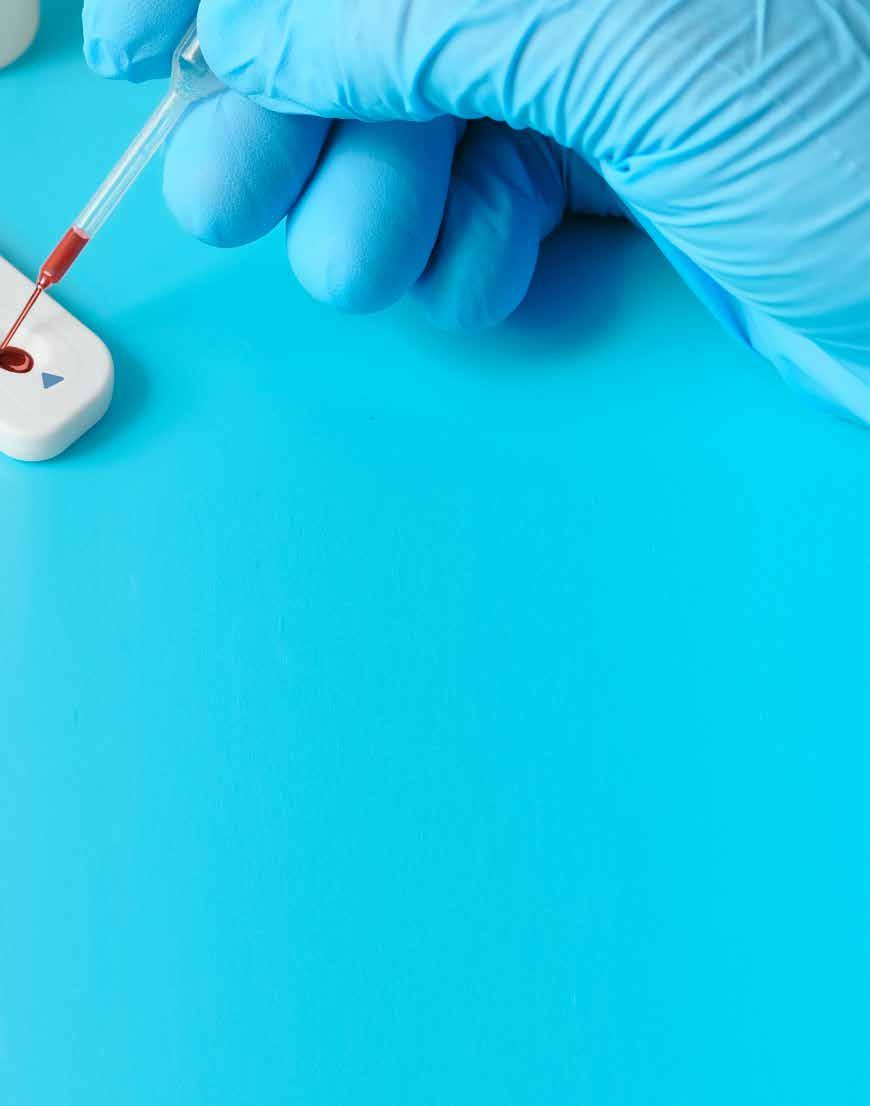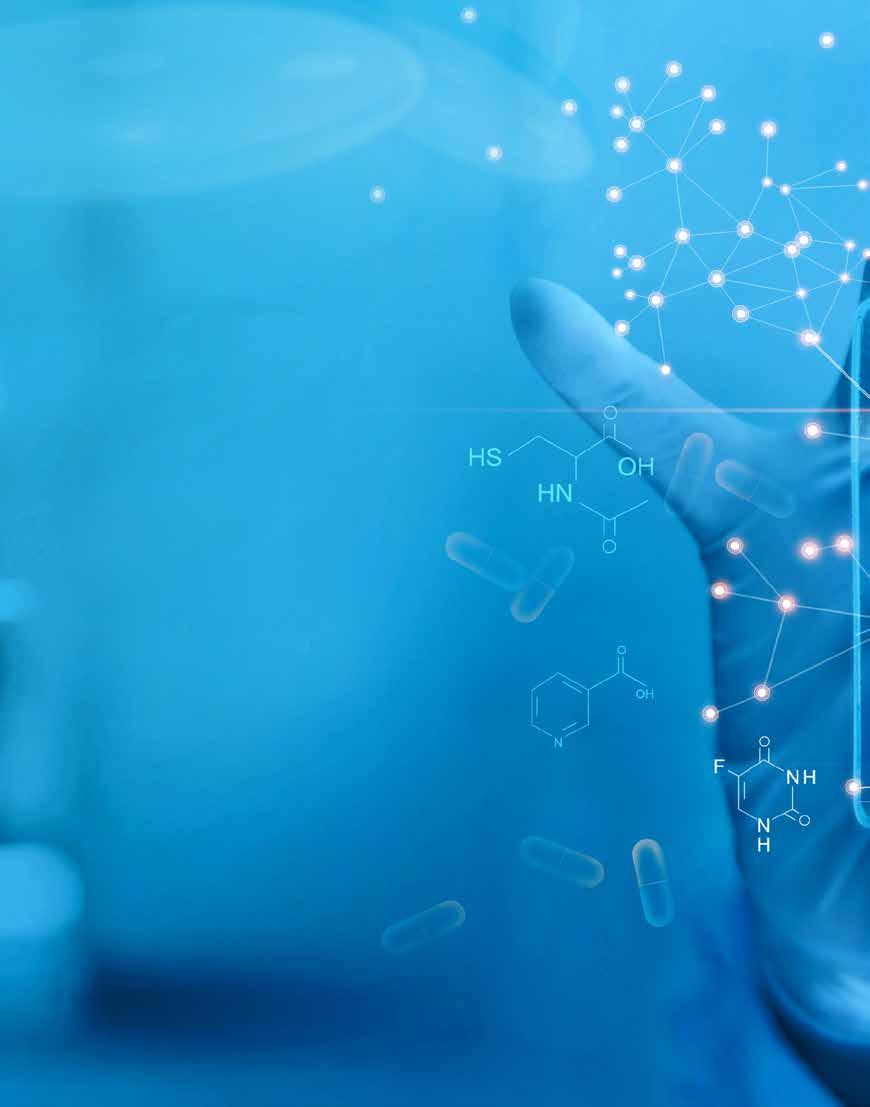
9 minute read
Didier Raoult
After a year of COVID19 do we know everything about the Virus?
No, we don't know everything yet. We continue to find out. What we do know is that the sooner the patient is treated the faster the recovery outcome. We also know that 1% of patients are less seriously impacted if treated early. The people who die are those who have a high morbidity rate. We also know that the recent variants in Europe were due to infection between humans and mink. It is a new disease. These viruses have an extraordinary mutation ability like all RNA viruses. They also have the ability to infect other animals and if the virus results in a high-density epidemic in animals, mutations can build up and we can see a new mutant emergence infecting us and creating a second epidemic that stems from another source than the one we had, and therefore
Advertisement
Director of IHU Méditerranée Infection Didier Raoult
By Zeina Trad-Marseille for "Hospitals" magazine
Thanks to Didier Raoult, Marseille is home to one of the largest infectious and tropical diseases teams in the world with more than one hundred nationalities within its URMITE (the Research Unit on Emerging Infectious and Tropical Diseases). Pfizer, Moderna, AstraZeneca…For the past several weeks, laboratories have been in a mad dash to know who will have the biggest announcement. Vaccines being developed at a surprisingly rapid rate have remarkable effectiveness rates, yet still lack evidence of their future ability to contain the epidemic. Worse yet, there is no guarantee that they will not cause side effects either. And once the euphoria has passed, many media outlets need to be scandalized by the emerging reserves, Professor Didier Raoult, Director of the University Hospital Institute of Infection (IHU) in Marseille received us to provide an update on the COVID-19 epidemic.
creating a second epidemic as the one we know in Europe today. WE DO NOT HAVE SUFFICIENT STUDIES ON THE CONSEQUENCES
Why do some people get sick and others don’t?
Everyone is affected more or less. Some experience mild symptoms and others more severe ones. If you are treated very early from the onset of symptoms, you will not develop severe symptoms. Otherwise, there is a good chance it will get worse. This disease affects the elderly population and those with a high morbidity rate (cancer, diabetes, etc.)
Do we know the long-term health consequences of infection?
Yes, we are starting to see neurological, pulmonary and venous complications. But for the moment, we do not have enough hindsight yet OF RNA. I AM WAITING FOR LABORATORIES TO SEE THE REAL DATA FOR MODERNA AND PFIZER.
to analyze all the long-term complications.
How long might immunity last?
We do not know, but we have seen people who were infected during the 1st episode of the disease, in March-April and who returned 4 months later with a new form of virus variant. Infection with the first variant does not protect against the last variant (variant 4).
Depending on the country, there are different variants. What we are currently seeing in France today is the variant 4 because we did the genomes sequencing, the last variant (the 4) also comes from Denmark where there are a lot of minks and there was an epidemic among these animals. The people caring for the minks got sick and the latter is suspected to be the cause of variant 4. In Denmark, they killed 13 million minks! RNA viruses mutate very fast, but that doesn't mean it's more serious. The monitoring of these clones should reflect on the vaccine composition, which must integrate several variants to make sure people are protected.
In your opinion, what is the best protocol in treating Covid19? And is it still the combination of hydroxychloroquine, the antimalarial drug, and azithromycin, a common antibiotic?
Yes, we continue to treat with this protocol with the addition of a zinc supplement. The people who receive care early, recover quickly. In France, we are prevented from doing research for old, unprofitable molecules. There is a power drift between people who have very little scientific experience and real researchers. You have to pay attention to the power of influence. The IHU in Marseille published the highest number of studies on Covid-19 in France (See https:// pubmed.ncbi.nlm.nih.gov). we have developed PCR test with results in 20 minutes. Many countries have used this protocol early, at the onset of the disease, and thus have seen the fatality rate drop by 0.5%! Early testing and early management is what needs to be done.
What can we expect from the vaccines that are starting to be used?
We do not yet have sufficient studies on the consequences of RNA vaccines. I'm waiting to see the real data from Moderna and Pfizer laboratories. I prefer the traditional Chinese vaccine method because we have enough hindsight on this type of vaccine, like the flu vaccine. Moderna and Pfizer's vaccines are completely new techniques and we don't know the side effects yet.
Will the pandemic end in 2021?
I can't predict this type of thing. We cannot predict a disease progression and mutation. I have always said since January, I am not a psychic. I describe what I see at a moment. I stick to reality. I am a doctor and a scientist. My primary role is to treat sick people who come here and that’s what I keep doing.
Are we going to see the virus still circulating after the pandemic is over?
Yes, it is possible, like Rhinoviruses which are RNA viruses that we see every season because they have a high mutation rate. With the variants, the future is still uncertain WE SET UP PCR TESTS WITH RESULTS IN 20 MINUTES. MANY COUNTRIES HAVE USED THIS PROTOCOL EARLY, AT THE ONSET OF THE DISEASE, AND THUS HAVE SEEN THE FATALITY RATE DROP BY 0.5%! EARLY TESTING AND EARLY MANAGEMENT IS WHAT NEEDS TO BE DONE.

The Role of Antibody Testing for SARS-CoV-2
Will recovered Covid-19 patients be spared from the Vaccine?
The antibody testing reveals the neutralizing antibodies that the human body creates to fight the coronavirus by examining its proteins, mainly the “S protein”.
These antibodies are significantly related to the immune responses of individuals who have recovered from the infection, as the body produces them to fight the infection, and this is similar to what happens in the body when a vaccine is taken, in which immunity is formed against the virus.
Serological tests measure the amount of antibodies or proteins present in the blood when the body is responding to a specific infection. It helps to better understand the virus and know how to respond to it, and provides an opportunity to track the spread of the virus and determine its extent.
Thus, the antibody testing plays a major role in the coronavirus pandemic because it can provide information about the spread of the virus among the population and the frequency of asymptomatic infection.
Do antibodies spare the recovered individual from getting the vaccine?
Many individuals who recovered from coronavirus ask this question after it has been proven that they have antibodies that protect them from getting infected again, at least in the short term. Does that spare them from getting vaccinated? So far, there is no final answer to this question, especially since vaccination trials today are mostly carried out on those who have not yet been infected with the coronavirus. But some people encourage giving vaccines to this group at a later stage because immunity against the virus diminishes over time as the level of immunity from natural infection is variable, therefore, some people get a very strong immune response, while others have a very weak immune response. At first, the priority remains for those who have not yet been infected, as well as for the frontline workers that work hard to confront the virus. Some experts in this field say that receiving the vaccine in the presence of antibodies will not help increase the immune response SEROLOGICAL TESTS MEASURE THE AMOUNT OF ANTIBODIES OR PROTEINS PRESENT IN THE BLOOD WHEN THE BODY IS RESPONDING TO A SPECIFIC INFECTION. IT HELPS TO BETTER UNDERSTAND THE VIRUS AND KNOW HOW TO RESPOND TO IT, AND PROVIDES AN OPPORTUNITY TO TRACK THE SPREAD OF THE VIRUS AND DETERMINE ITS EXTENT.

against the coronavirus. The antibodies disappear from the body of the recovered individual and their effectiveness disappears after 8 months, so those who have recovered from the disease must undergo an antibody testing once every three months.
What are antibodies?
Antibodies are proteins produced by your immune system in response to an infection. Your immune system — which involves a complex network of cells, organs and tissues — identifies foreign substances in your body and helps fight infections and diseases. After infection with the COVID-19 virus, it can take two to three weeks to develop enough antibodies to be detected in an antibody test, so it's important that you're not tested too soon.
Antibodies may be detected in your blood for several months or more after you recover from COVID-19. Although these antibodies probably provide some immunity to the COVID-19 virus, there's currently not enough evidence to know how long the antibodies last or to what extent past infection with the virus helps protect you from getting another infection. The IgM antibody is assembled first as the body actively fights the infection and the presence of this antibody may indicate a more recent infection. Then the IgG antibody is created, after the acute infection. IgG antibody has the potential to provide long-lasting immunity to a virus.
The level of IgM antibody begins to rise after 1 week after the initial infection, while the IgG appears later than IgM (usually in 14 days after infection) and can last for 6 months or even several years, which means that the IgG serves as an indicator of previous infection.
Antibodies circulate in your blood, hunting for antigens they recognize. When a familiar antigen is spotted, antibodies can stop it from entering or damaging your cells. Having enough of the right kinds of antibodies can often keep you from getting sick with the same virus more than once.
Most people who are infected with COVID-19 develop an immune response within the first few weeks after infection. RESEARCH IS STILL ONGOING INTO HOW STRONG THAT PROTECTION IS AND HOW LONG IT LASTS. WHO IS ALSO LOOKING INTO WHETHER THE STRENGTH AND LENGTH OF IMMUNE RESPONSE DEPENDS ON THE TYPE OF INFECTION A PERSON HAS: WITHOUT SYMPTOMS, MILD OR SEVERE. EVEN PEOPLE WITHOUT SYMPTOMS SEEM TO DEVELOP AN IMMUNE RESPONSE.











